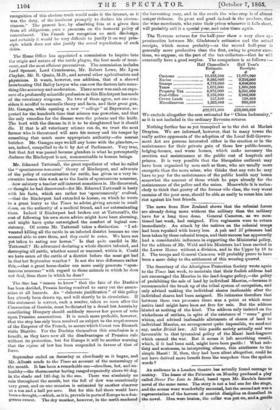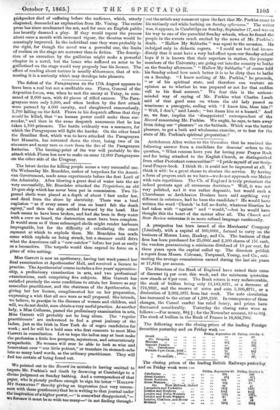An audience in a London theatre has actually found courage
to mutiny. The lessee of the Princess's on Monday produced a play called Never Too Late to Mend, based upon Mr. Reade's famous novel of the same name. The story is not a bad one for the stage, and the scenes were wonderfully mounted, but the second act was a representation of the horrors of convict discipline as described in the novel. Men were beaten, the collar was put on, and a gentle
pickpocket died of suffering before the audience, which, utterly disgusted, demanded an explanation from Mr. Yining. The entire press has since condemned the act, and for once an English public has heartily damned a play. If they would repeat the process about once a month with increased vigour, the theatres would be amazingly improved. In the individual case they were probably in the right, for though the novel was a powerful one, the limits of realism on the stage are narrower than in fiction. The descrip- tion of an execution by the guillotine might make a powerful chapter in a novel, but the lessee who suffered an actor to be guillotined on the stage would very properly lose his licence. The effect of reading about torture is usually abhorrence, that of wit- nessing it is a curiosity which may develope into pleasure.































 Previous page
Previous page